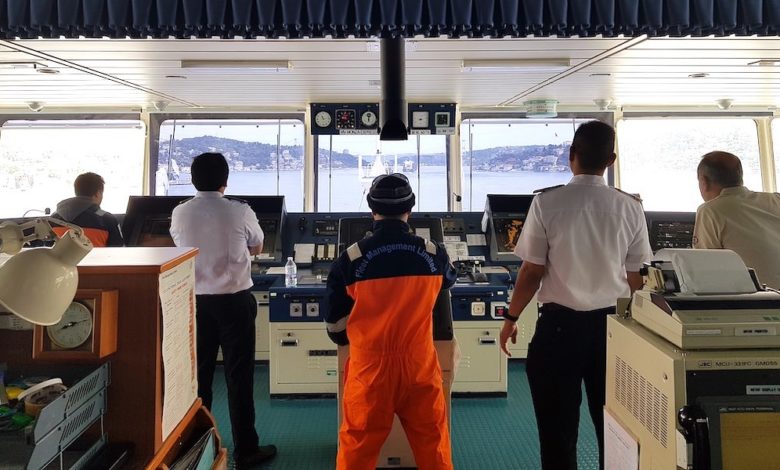Up to 800,000 seafarers will require additional training to meet decarbonisation goals

A new action plan, launched at the COP27 climate conference in Egypt by United Nations organisations, shipowners and unions, sets out recommendations to upskill seafarers to meet shipping’s decarbonisation goals. The plan is in response to findings from new research, the modelling of which cautions that as many as 800,000 seafarers will require additional training by the mid-2030s. The research comes at a time where many seafarers are concerned about safety aspects of potential future fuels such as ammonia.
Findings also suggest that a lack of certainty on alternative fuel options is having knock-on effects for seafarer training, as the global maritime community works towards a clearer decarbonisation pathway in a post-fossil fuel era.
The research was conducted by DNV and commissioned by the Maritime Just Transition Task Force, an organisation established at COP26 in Glasgow last year.
This is good business sense, this is ethically and morally the right thing to do
Sanda Ojiambo, CEO of the UN Global Compact, said that the action-plan represents a global first with shipping becoming the first business sector uniting in a tripartite framework – shipowners, seafarers’ unions and UN organisations – to discuss how to secure a just transition together.
Guy Platten, the secretary-general of the International Chamber of Shipping, said: “There is an urgent need to establish the infrastructure and training required to prepare our seafaring workforce, both in developed and developing countries, to help meet our decarbonisation objectives. This should be done as of today, so they are ready and able to meet the challenges that new green fuels and propulsion technologies will pose and mitigate any potential health and safety risks for ships, communities, the environment and seafarers themselves. This is an opportunity for all so that no-one is left behind. Shipping cannot decarbonise without its workers and the 10-point action plan developed by the task force maps out a pathway for how this can be achieved, as our industry continues to navigate towards a decarbonised future.”
Karin Orsel, CEO of Dutch shipowner MF Shipping, commented: “As shipowners and operators we must recognise that we cannot achieve a green transition without our seafarers. Shipping has an opportunity to be a leader in the creation of a just green transition, in which we invest in the training and upskilling of our workforce, create decent job opportunities for all, not just for the few, raise work standards, tackle safety concerns, and ensure diversity issues are addressed from the outset. This is good business sense, this is ethically and morally the right thing to do, and importantly, if we embed just transition practices into our operations from the outset, we will as an industry have a stronger chance of meeting our global carbon reduction targets.”
The full 20-page report can be accessed here.

It is a truth universally acknowledged, that any seafarer in possession of employment must be in need of further training.
Agree.